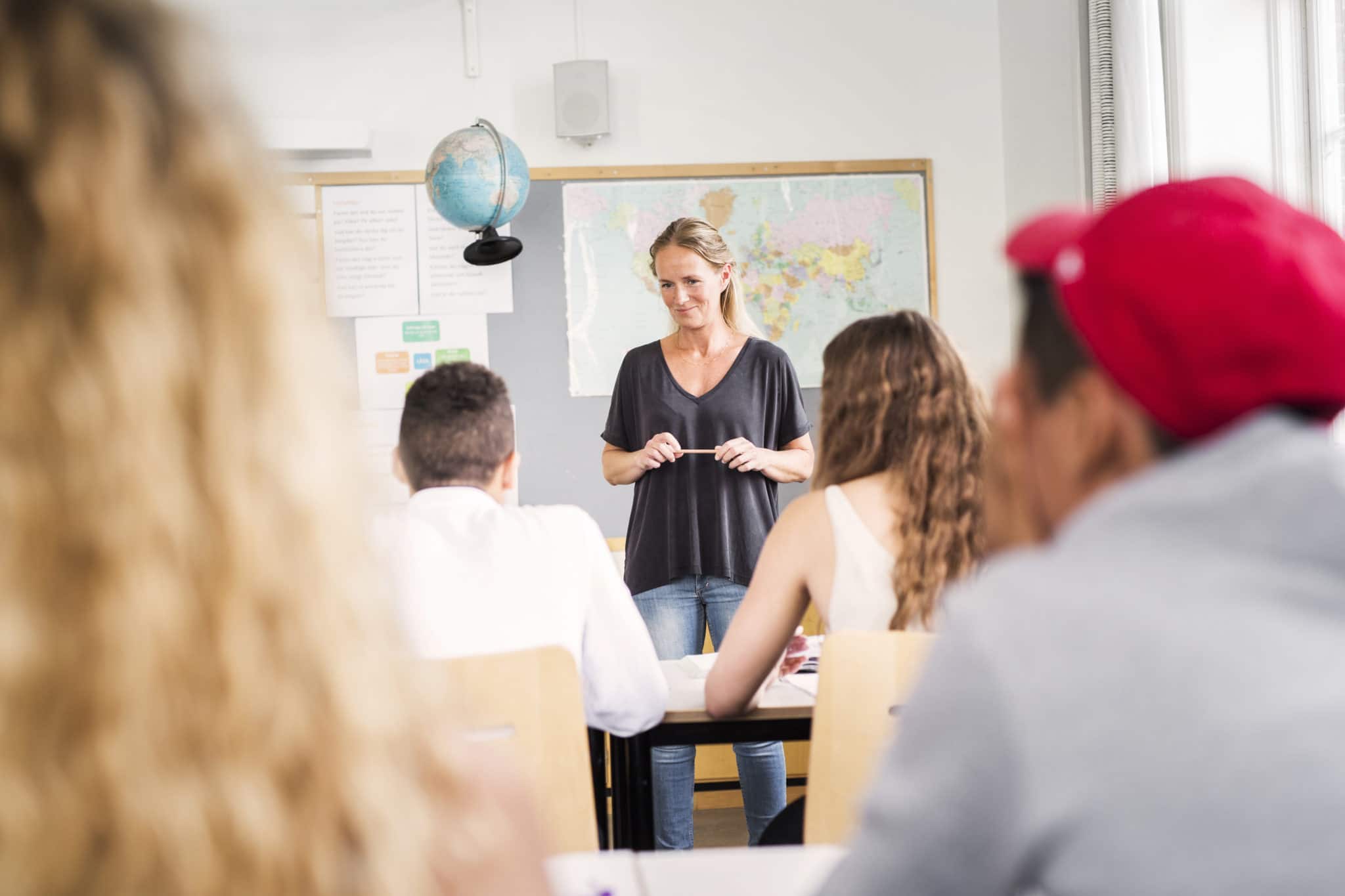Less than a third of secondary school students said their teachers challenged anti-LGBT+ language. (Envato)
Almost half (46 per cent) of LGBT+ school students in England do not feel safe to be themselves at school, a study has revealed.
LGBT+ education charity Diversity Role Models released its “Pathways to LGBT+ Inclusion” report Wednesday (18 November), which quizzed 6,136 students and 5,733 adults from 90 schools, which were all “at the start” of their journey towards LGBT+ inclusion.
It found that across the board, 46 per cent of LGBT+ students would not feel safe coming out at school. Of secondary school students, this figure jumped to almost three quarters (73 per cent).
In a foreword for the report, presenter Clare Balding said: “Just let that sink in. The place you are relying upon to prepare you for the world, the place where you are supposed to get an all-round education is not currently a safe space if you are LGBT+.”
The report also highlighted a huge disparity between the experiences of LGBT+ students and what the teachers responsible for their care were willing to admit.
While 42 per cent of year five and six primary school students and 54 per cent of secondary school students said that homophobic, biphobic and transphobic language was common at their school, just 26 per cent of teachers admitted this was the case.
When this language did come up, just 67 per cent of primary school teachers and 78 per cent of secondary school teachers said they challenged it.
But, according to students, the situation is even worse. Less than a third (32 per cent) of secondary school kids said that staff challenged anti-LGBT+ language.
Balding added: “The report has discovered that parents, staff and governors tend to underestimate the occurrence of bullying compared to the pupils themselves.
“This is crucial because what adults may think and how adults may react to language will naturally be more considered and resilient. We grow stronger as we grow older but children don’t have those layers of protective experience.
“They respond and react as if stung or burnt and it’s why it is so important that we take these findings seriously and we, as adults, react quickly to protect the most vulnerable.”
Researchers spoke to “selective and non-selective schools, independent, faith schools and non-denominational schools, local-authority-maintained schools, academies, free schools and mixed- and single-gender schools” in London, the West Midlands and the South East of England, to compile the report.
Discrimination and bullying at school can have tragic consequences for LGBT+ youth, who are already at greater risk for mental health problems.
Earlier this year, Cameron Warwick, a 16-year-old boy who was “relentlessly” bullied for being gay and autistic, died by suicide.
